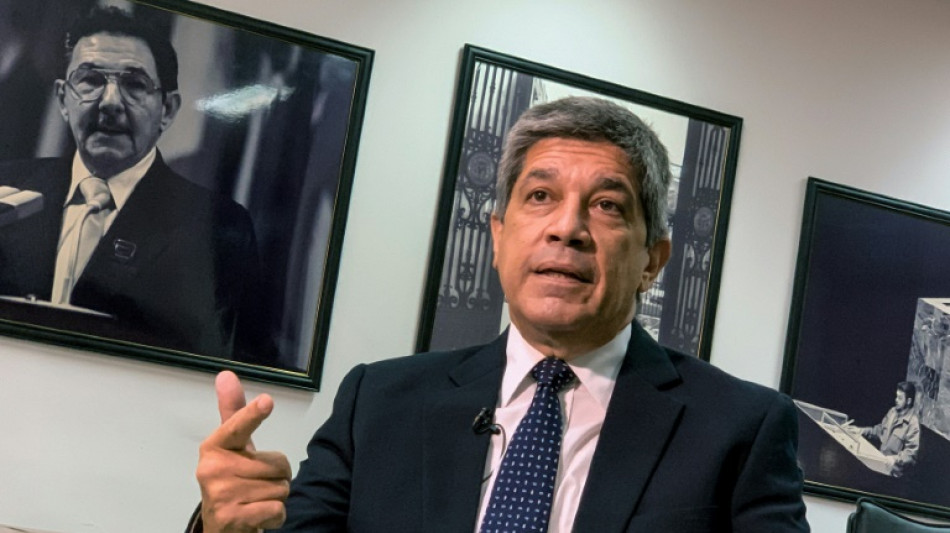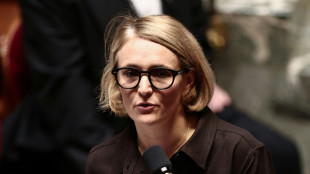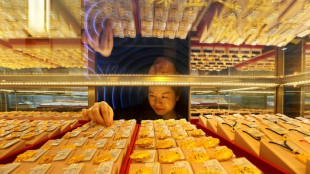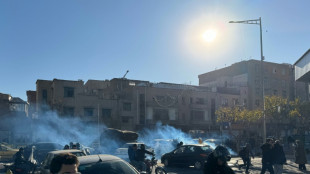
| RBGPF | 0.42% | 81.05 | $ | |
| VOD | -0.15% | 13.21 | $ | |
| RYCEF | 0.32% | 15.5 | $ | |
| CMSC | 0.07% | 22.7 | $ | |
| BTI | 0.14% | 56.63 | $ | |
| AZN | -0.63% | 91.93 | $ | |
| GSK | -0.53% | 49.04 | $ | |
| RIO | -0.61% | 80.03 | $ | |
| RELX | -1.68% | 40.43 | $ | |
| SCS | 0.12% | 16.14 | $ | |
| NGG | -0.54% | 77.35 | $ | |
| JRI | 0.07% | 13.59 | $ | |
| BCC | -0.26% | 73.595 | $ | |
| BP | -0.09% | 34.72 | $ | |
| BCE | 1.11% | 23.835 | $ | |
| CMSD | -0.09% | 23.11 | $ |

US lacks moral authority to criticize rights abuses: Cuba
Cuba, marking six decades under American sanctions this week, has lashed out at US "cruelty" against the island nation and said Washington lacked the moral authority to criticize rights violations in other countries.
Deputy Foreign Minister Carlos Fernandez de Cossio, in an interview with AFP, said the effects of the US blockade against communist Cuba were now "greater than ever."
"The United States has a disastrous record in terms of human rights, it has a disastrous record in terms of its people's democratic rights, and the United States has no right to give lessons to anyone," he said.
"Above all, it doesn't have the right to manipulate a subject as sensitive as human rights to attack countries it doesn't agree with," added Fernandez de Cossio, while conceding that "all countries, Cuba included, have much to improve in the area of human rights."
The deputy minister's comments come on the eve of the 60th anniversary of Washington's embargo against Cuba, announced on February 3, 1962, after the revolution that gave rise to a communist regime.
It also comes as the United States has ramped up criticism of Cuban authorities following the arrest of hundreds of people for taking part in anti-government protests last July.
Last week, Cuban authorities acknowledged for the first time that more than 700 people had been charged over the protests, and 172 already convicted.
- 'We are hungry' -
Washington has been vocal in its condemnation of the crackdown.
"Freedom of expression & the right to a fair trial are universal human rights that all countries should protect & uphold," Brian Nichols, the US Assistant Secretary for Western Hemisphere Affairs, wrote on Twitter.
Fernandez de Cossio, who is in charge of relations with Washington, retorted that Nichols' criticism was based on "false pretenses" being used "to justify a policy that the international community and a significant part of the people of the United States reject."
Thousands of protesters turned out countrywide, shouting "Freedom" and "We are hungry" in July's unprecedented, spontaneous demonstrations.
The government response left one person dead, dozens injured and 1,300 arrested.
Havana says all defendants had access to defense lawyers but critics, including Human Rights Watch, say the attorneys were not independent and decry the proceedings as sham trials.
Havana blames the United States and its sanctions for the misery of the Cuban people, who have to stand in long queues daily for food and other essentials, always with the risk of leaving empty handed.
Former US president Donald Trump ramped up financial and diplomatic sanctions during his four-year term, putting Cuba back on a list of state sponsors of terrorism.
- 'Cruel and immoral' -
Hit by a sharp drop in tourist numbers due partly to the blockade and partly to the coronavirus pandemic, Cuba recorded an 11 percent economic decline in 2020, followed by a modest two percent recovery last year.
It recorded an official inflation rate of 70 percent in 2021 amid its worst economic crisis in almost three decades, with food imports slashed due to dwindling government reserves.
There were hopes of a change of direction when President Joe Biden entered the White House, but not one sanction has been lifted during his first year in office.
During his presidential campaign, Biden had promised a "new policy towards Cuba" and the lifting of certain restrictions.
"The Cuban government had reason to believe that... the president would carry out what he promised," said Fernandez de Cossio.
But "life has shown us that it wasn't the case."
He said the United States was either unable or unwilling to change its "failed" policy towards Cuba.
"If there is something that demonstrates the cruel and immoral nature of the embargo, it is that in 2020 and 2021, the toughest period of the Covid-19 pandemic when the whole world was calling for solidarity and support, the United States government decided to ramp up sanctions," said Fernandez de Cassio.
This "cruelty," he added, was "something that for several generations of Cubans will be difficult to forget."
C.Bertrand--JdB


